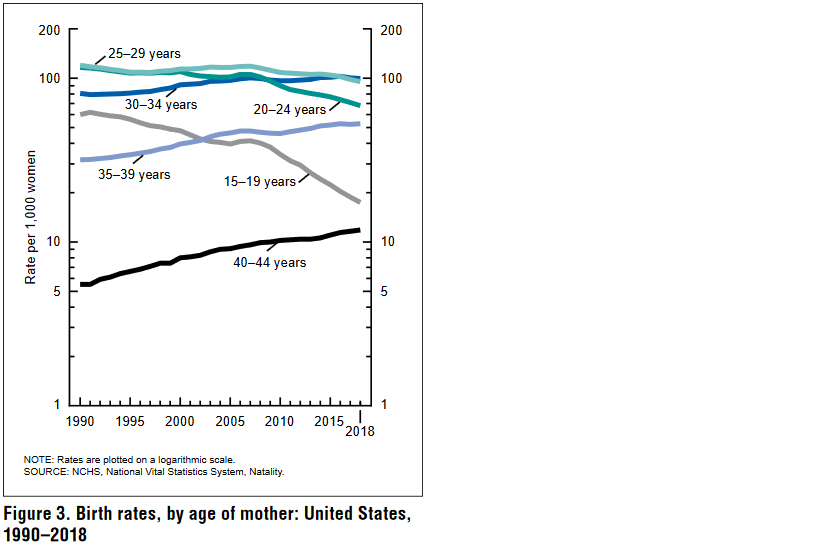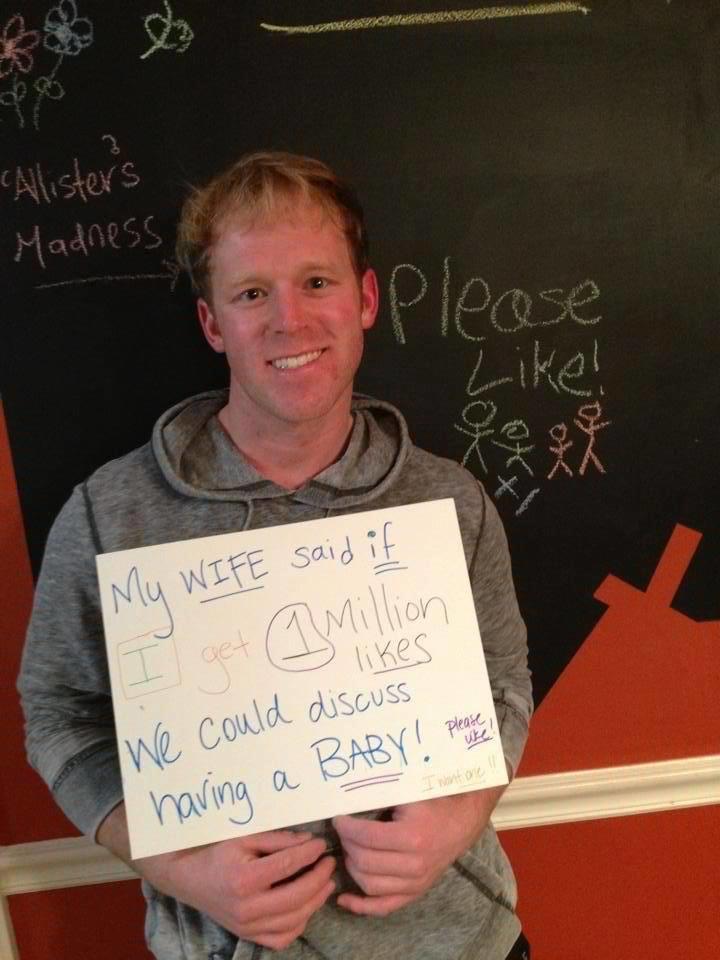US Fertility Rate Hit Record Low In 2018
The US fertility rate dropped for the fourth straight year in 2018, and has fallen approximately 15% since 2007, according to the National Center for Health Statistics – which reports that there were 59.1 births for every 1,000 women of childbearing age.
In total, 3,791,712 births were recorded across the country last year – extending a steep decline that began during the 2008 Recession, according to the New York Times.
As one user in Reddit’s “Childfree” forum notes: “Babies are expensive, and we’re all broke,” to which another user replied “Also, pregnancy and its effects on the body are gross and not worth it.”
There you go.
While teen pregnancy rates dropped the most at 7.4%, women between 20 – 24 years of age recorded the second steepest decline of any age demographic, while mothers aged 40-44 rose 2% from 2017 – a demographic which has risen almost continuously since 1985 as women choose to have children later in life.
“It’s clear that the traditional age-fertility pattern that held for Baby Boomers and Gen X women is shifting,” said Brookings Institution senior demographer William Frey, who notes that over 50% of women who had children in their late 30s last year had college degrees – eclipsing women in their late 20s.
“The data suggest that people want to establish themselves before having children,” said Johns Hopkins demographer Alison Gemmill. “They also want to make sure they have adequate resources to raise quality children.”
Meanwhile, suicide rates among young Americans are at 20-year highs.
The Times notes that Demographers have been scratching their heads over whether this is a “temporary phenomenon or a new normal, driven by deeper social change.”
Fertility rates tend to drop during difficult economic times, as people put off having babies, and then rise when the economy rebounds. That is what happened during and after the Great Depression of the 1930s. But this time around, the birthrate has not recovered with the economy. A brief uptick in the rate in 2014 did not last.
“It is hard for me to believe that the birthrate just keeps going down,” said Kenneth M. Johnson, a demographer at the University of New Hampshire.
Mr. Johnson estimated that if the rate had remained steady at its 2007 level, there would have been 5.7 million more births in the country since then. –New York Times
The Times also notes that “Other sweeping social changes have accompanied the delay in childbearing. New data from the Census Bureau show that the median age of first marriage is now 28 for women and nearly 30 for men; in 1970, the median ages were 21 and 23,” according to Frey said. “This is a far cry from the 1950s, or even the 1980s and the 1990s.”
Meanwhile, this poor guy is just trying to reproduce:
Tyler Durden
Thu, 12/05/2019 – 23:05
via ZeroHedge News https://ift.tt/368IaRT Tyler Durden





